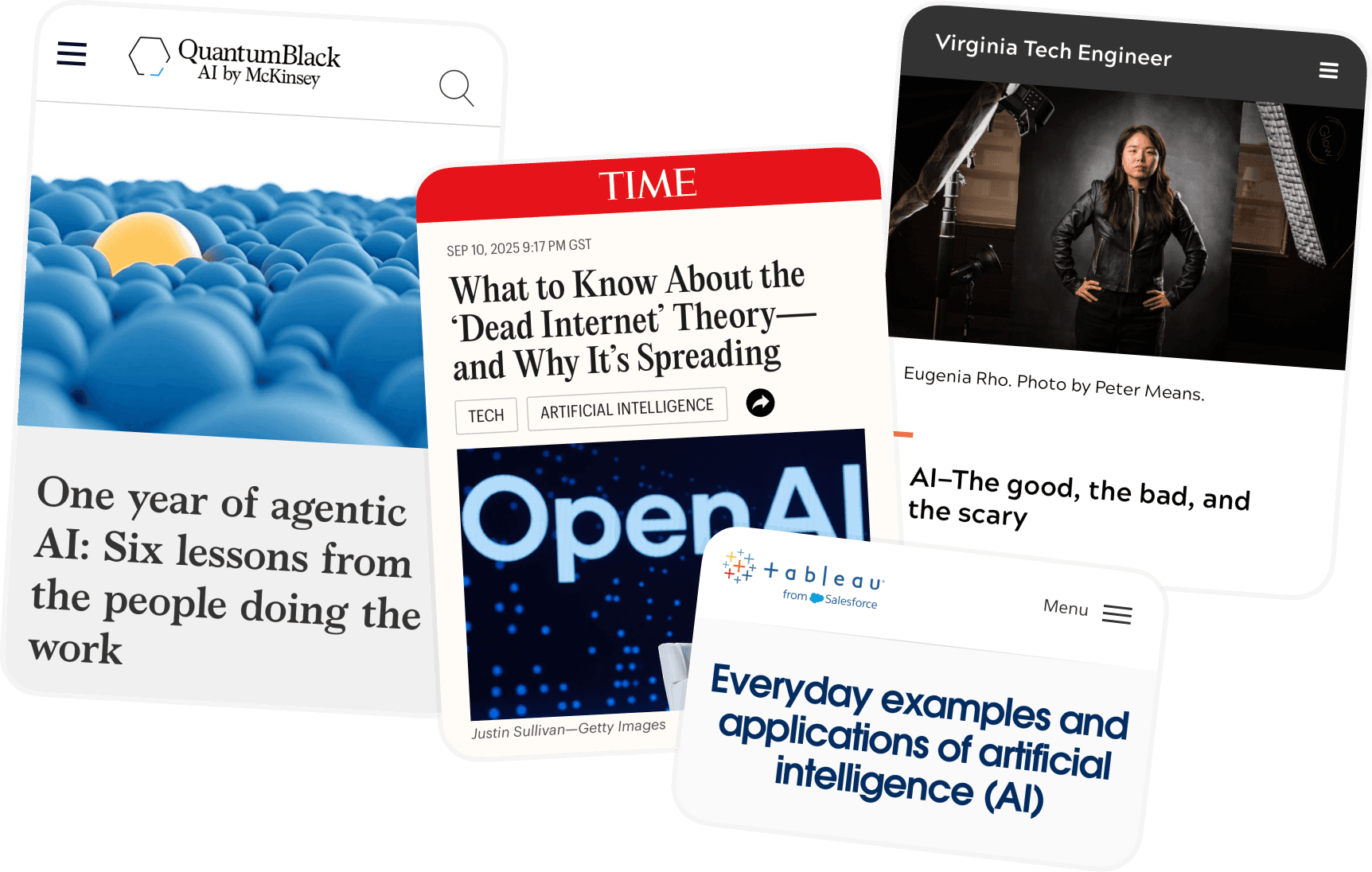GenAI Insights
November 13, 2025
Article by
Mindrift Team
Courses: Build foundations and stretch your thinking

Foundational courses are the perfect starting point, whether you’re new to AI, use it consistently, or even train it. If you want to get a good overview of AI, try:
Elements of AI: MinnaLearn and University of Helsinki created a classic beginner-friendly course that combines clear explanations with practical exercises.
Essential AI Skills: Another classic course from Google that introduces concepts like GenAI, prompting, and responsible AI use.
IBM’s AI courses: These modular courses help you build specific knowledge, from foundations to applied machine learning.
If you have the foundations covered, move onto these slightly more advanced and AI Trainer-specific courses:
AI Prompts Foundations: A great course about prompt creation for AI Trainers from Uxcel. Note that only the first level of this course is free.
Human-Centered AI: Another Uxcel course, this time focusing on creating trustworthy, responsible AI models. Note that only the first level of this course is free.
Ethics of AI: The University of Helsinki’s thoughtful dive into the ethical, legal, and societal implications of AI.
Articles: Encourage curiosity, critique, and awareness

There are millions (don’t quote us on that) articles about AI on the internet, but they’re not always insightful, interesting, or valuable. If you’re looking for something to spark your imagination and expand your perspective, try these great reads:
Everyday examples and applications of AI: A practical overview of how AI impacts daily life, from smart assistants to data-driven workspaces.
AI — the good, the bad, and the scary: A collection of opinions from Virginia Tech instructors exploring ethical and social issues related to AI.
Inside the future of AI: Another exploration from Virginia Tech, this time looking forward at the future of AI.
What to know about the dead internet theory: A fascinating look at how automation and synthetic content might be reshaping the internet from TIME Magazine.
One year of agentic AI: Six lessons from the people doing the work: Insights from McKinsey on what happens when humans and agents collaborate — a very hot topic in the AI space right now.
Bonus tip — head over to the Mindrift blog where we post community stories, GenAI insights, Mindrift news, and more!
Learning hubs: Dive deeper, learn about real-world applications

For those who enjoy falling down an AI rabbit hole now and then, these resources offer technical insights, long reads, and hands-on perspectives.
Berkeley Artificial Intelligence Research (BAIR) is an idea hub where AI-curious readers can find everything from technical posts to research papers, hands-on experiments, and deep dives into very niche aspects of the AI universe. We suggest starting with:
Ghostbuster: Detecting Text Ghostwritten by Large Language Models
Linguistic Bias in ChatGPT: Language Models Reinforce Dialect Discrimination
Evaluating and Testing Unintended Memorization in Neural Networks
MIT offers an AI Basics Guide full of short, practical explainers on every day challenges. Although geared towards educators, these short modules are also perfect for trainers who want to get into the nitty-gritty of AI, AI training, and real-world applications. Start with:
Explore AI opportunities in your field
Browse domains, apply, and join our talent pool. Get paid when projects in your expertise arise.
Article by

Mindrift Team




